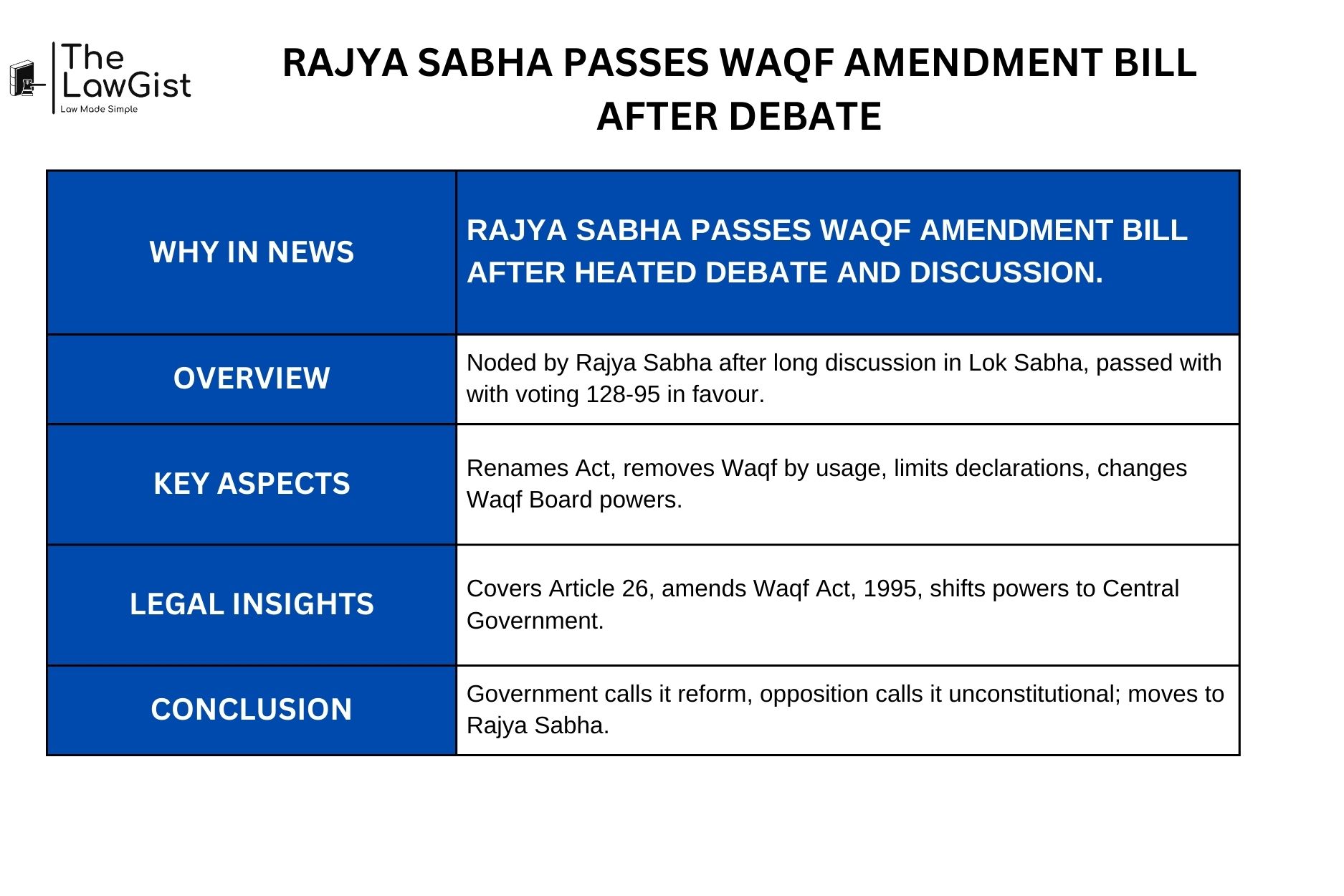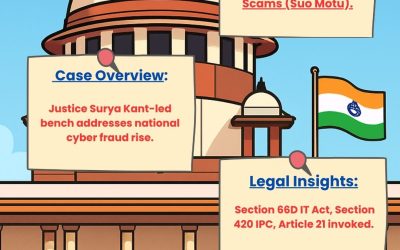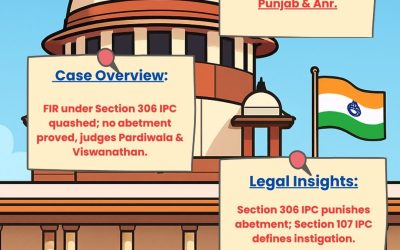
The Rajya Sabha passes Waqf Amendment Bill after debate, modifying governance and property management under the Waqf Act, 1995.
RAJYA SABHA PASSES WAQF AMENDMENT BILL AFTER DEBATE
Why in News?
The Rajya Sbha passed the Waqf (Amendment) Bill, 2024 in the friday morning (4th April 2025) after a heated debate and discussion.
Overview
The Waqf (Amendment) Bill, 2024 introduced to modify and amend the Waqf Act, 1995 to improve governance and transparency in Waqf property management. The Rajysa Sabha passed the Bill with voting 128-95 in favour after a long discussion.The Waqf (Amendment) Bill, 2024 was passed Lok Sabha with 288-232 voting on Thursday.
Key Aspects
- The Waqf Bill proposes renaming the 1995 Act to Unified Waqf Management, Empowerment, Efficiency and Development Act to show its broader objectives.
- It eliminates the provision permitting properties to become Waqf by prolonged use.
- Only a Muslim practicing for at least 5 years can declare a Waqf and they must own the property as well.
- The Waqf Board will no longer have the authority to decide if a property is Waqf.
- The Central Waqf Council will now include 2 non-Muslim members, unlike the previous all Muslim composition.
- The Centre and not states, will have authority over Waqf audits through the CAG.
- Appeals against Waqf Tribunal decisions can now be filed in the High Court within 90 days.
Legal Insights
- Article 26 of Constitution : Opponents argue the Bill violates on Muslims’ right to manage religious affairs.
- Waqf Act, 1995: The Bill amends provisions on ownership, governance and dispute resolution.
- Separation of Powers: Shifts some authority from Waqf Boards and Tribunals to the Central Government.
- Constitutional Debate: Critics call it a violation of religious freedom while supporters claim it is for transparency.
Conclusion
The Waqf (Amendment) Bill, 2024 has caused controversy with the government defending it as a necessary and important reform while the opposition sees it as an attack on religious rights. The Bill now moves to the Rajya Sabha for further discussion.
Source







